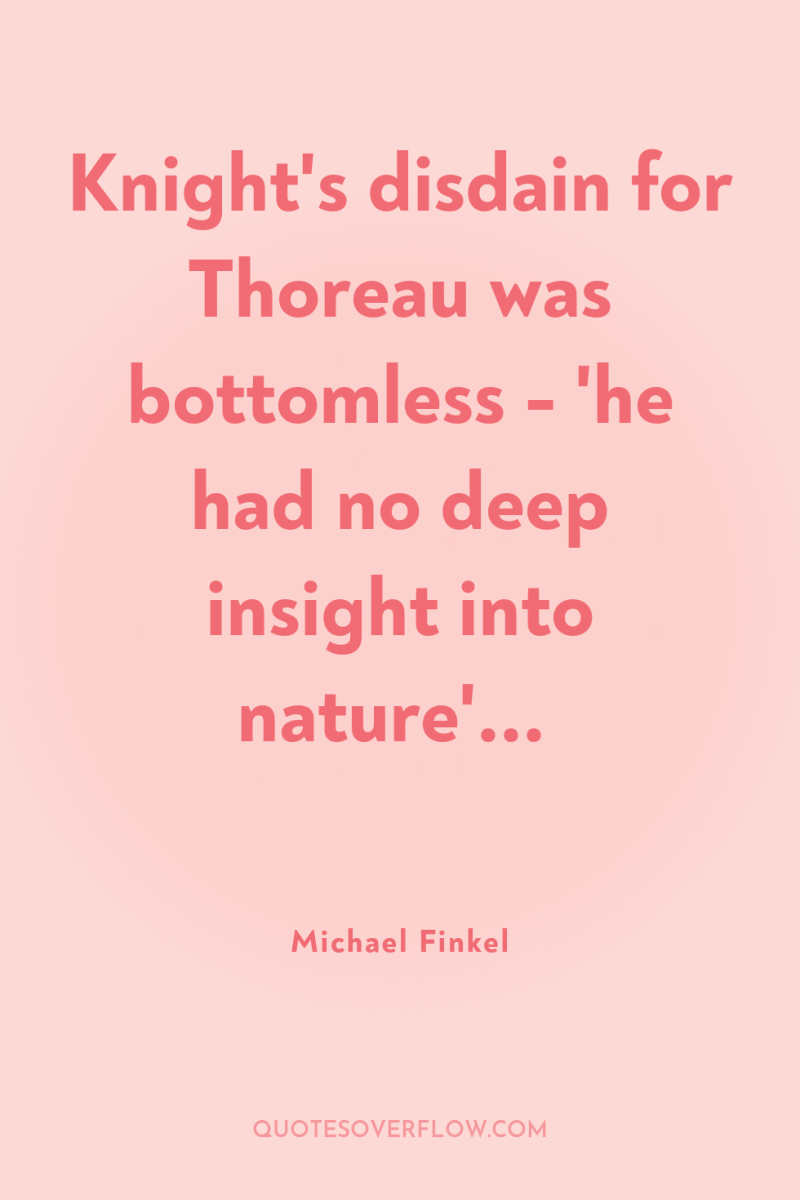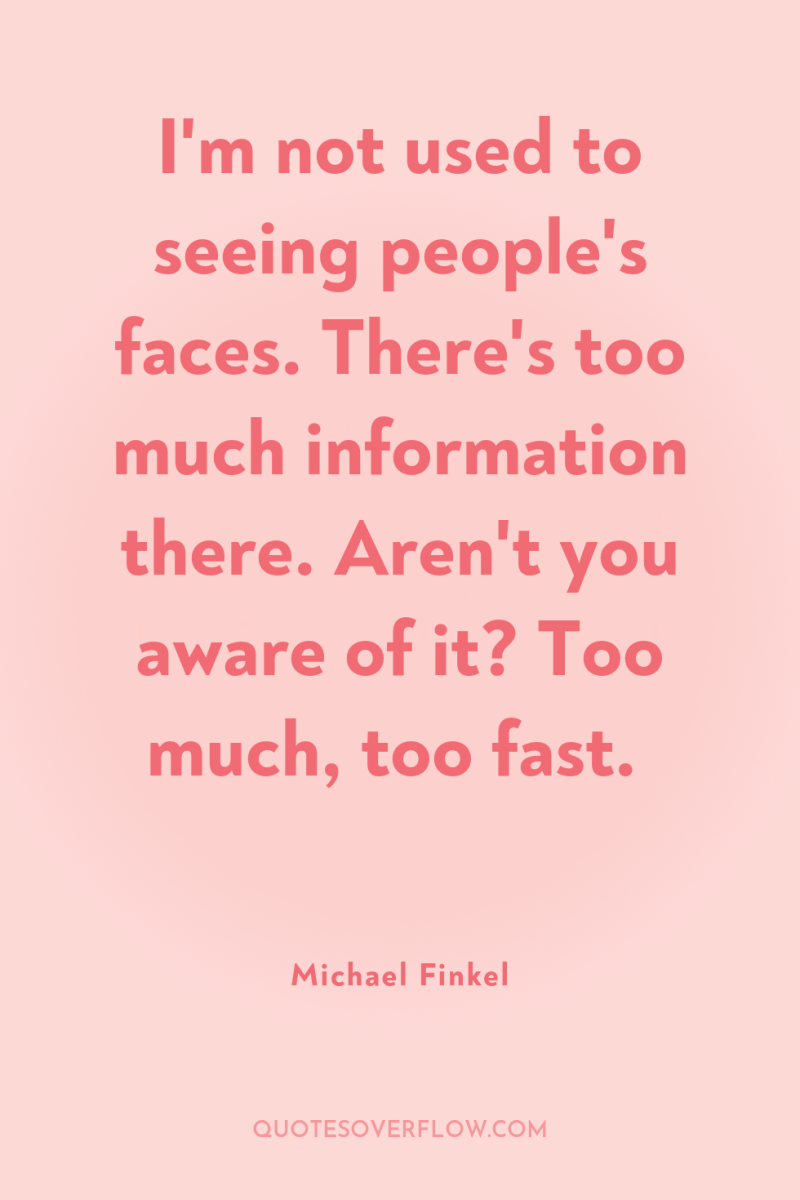1
In 1988, a cave explorer named Véronique Le Guen volunteered for an extreme experiment: to live alone in an underground cavern in southern France without a clock for one hundred and eleven days, monitored by scientists who wished to study the human body's natural rhythms in the absence of time cues. For a while, she settled into a pattern of thirty hours awake and twenty hours asleep. She described herself as being "psychologically completely out of phase, where I no longer know what my values are or what is my purpose in life." When she returned to society, her husband later noted, she seemed to have an emptiness inside her that she was unable to fully express. "While I was alone in my cave I was my own judge, " she said. "You are your own most severe judge. You must never lie or all is lost. The strongest sentiment I brought out of the cave is that in my life I will never tolerate lying." A little more than a year later, Le Guen swallowed an overdose of barbiturates and lay down in her car in Paris, a suicide at age thirty-three. .Michael Finkel
2
He pilfered a copy of Ulysses, but it was possibly the one book he did not finish. 'What's the point of it? I suspect it was a bit of a joke by Joyce. He just kept his mouth shut as people read into it more then there was. Pseudo-intellectuals love to drop the name Ulysses as their favorite book. I refused to be intellectually bullied into finishing it.Michael Finkel

3
Knight's disdain for Thoreau was bottomless - 'he had no deep insight into nature'...Michael Finkel

4
The only book Knight didn't steal was the one he most often saw. 'I had no need for a Bible, ' he said.Michael Finkel
5
With his release imminent, Knight seems more unsettled than ever. He scratches furiously at his knees. Jail, he's realized, might not be all bad. There's routine and order in jail, and he's able to click into a survival mode that is not too dissimilar, in terms of steeliness of mental state, to the one he'd perfected during winters in the woods. "I'm surrounded in here by less than desirable people, " he says, "but at least I wasn't thrown into the waters of society and expected to swim.Michael Finkel
6
His chief form of entertainment was reading. The last moments he was in a cabin were usually spent scanning bookshelves and nightstands. The life inside a book always felt welcoming to Knight. It pressed no demands on him, while the world of actual human interactions was so complex. Conversations between people can move like tennis games, swift and unpredictable. There are constant subtle visual and verbal cues, there's innuendo, sarcasm, body language, tone. Everyone occasionally fumbles an encounter, a victim of social clumsiness. It's part of being human. To Knight, it all felt impossible. His engagement with the written word might have been the closest he could come to genuine human encounters. The stretch of days between thieving raids allowed him to tumble into the pages, and if he felt transported he could float in bookworld, undisturbed, for as long as he pleased.Michael Finkel
7
It's possible that Knight believed he was one of the few sane people left. He was confounded by the idea that passing the prime of your life in a cubicle, spending hours a day at a computer, in exchange for money, was considered acceptable, but relaxing in a tent in the woods was disturbed. Observing the trees was indolent; cutting them down was enterprising. What did Knight do for a living? He lived for a living. .Michael Finkel

8
I'm not used to seeing people's faces. There's too much information there. Aren't you aware of it? Too much, too fast.Michael Finkel
9
Language and hearing are seated in the cerebral cortex, the folded gray matter that covers the first couple of millimeters of the outer brain like wrapping paper. When one experiences silence, absent even reading, the cerebral cortex typically rests. Meanwhile, deeper and more ancient brain structures seem to be activated--the subcortical zones. People who live busy, noisy lives are rarely granted access to these areas. Silence, it appears, is not the opposite of sound. It is another world altogether, literally offering a deeper level of thought, a journey to the bedrock of the self.Michael Finkel
10
I read. That's my form of travel.Michael Finkel
11
Modern life seems set up so that we can avoid loneliness at all costs, but maybe it's worthwhile to face it occasionally. The further we push aloneness away, the less are we able to cope with it, and the more terrifying it gets. Some philosophers believe that loneliness is the only true feeling there is. We live orphaned on a tiny rock in the immense vastness of space, with no hint of even the simplest form of life anywhere around us for billions upon billions of miles, alone beyond all imagining. We live locked in our own heads and can never entirely know the experience of another person. Even if we're surrounded by family and friends, we journey into death completely alone.Michael Finkel
12
He left because the world is not made to accommodate people like him.Michael Finkel
13
Passion must be subject to reason; emotions lead one astray. "There was no one to complain to in the woods, so I did not complain.Michael Finkel
14
Soon he essentially stopped talking. "I am retreating into silence as a defensive mode, " he mentioned. Eventually, he was down to uttering just five words, and only to guards: yes; no; please; thank you. "I am surprised, " he wrote, "by the amount of respect this garners me. That silence intimidates puzzles me. Silence is to me normal, comfortable." Later he added, "I will admit to feeling a little contempt for those who can't keep quiet.Michael Finkel
15
Knight seemed to weigh the precision of every word he used, careful as a poet. Even his handwritten letters had gone through at least one draft, he said, mostly to remove unnecessary insults. Only necessary ones remained.Michael Finkel
16
Modern life seems set up so that we can avoid loneliness at all costs, but maybe it's worthwhile to face it occasionally. The further we push aloneness away, the less we are able to cope with it, and the more terrifying it gets. Some philosophers believe that loneliness is the only true feeling there is.Michael Finkel
17
Silence, it appears, is not the opposite of sound. It is another world altogether, literally offering a deeper level of thought, a journey to the bedrock of the self.Michael Finkel
18
Conversations between people can move like tennis games, swift and unpredictable. There are constant subtle visual and verbal cues, there's innuendo, sarcasm, body language, tone. Everyone occasionally fumbles an encounter, a victim of social clumsiness. It's part of being human.Michael Finkel
19
Not for a moment did he consider keeping a journal. He would never allow anyone to read his private thoughts; therefore, he did not risk writing them down. "I'd rather take it to my grave, " he said. And anyway, when was a journal ever honest? "It either tells a lot of truths to cover a single lie, " he said, "or a lot of lies to cover a single truth.Michael Finkel
20
That silence intimidates puzzles me. Silence is to me normal, comfortable." Later he added, "I will admit to feeling a little contempt for those who can't keep quiet.Michael Finkel
21
Still, the ten days were enough for me to see, as if peering over the edge of a well, that silence could be mystical, and that if you dared, diving fully into your inner depths might be both profound and disturbing.Michael Finkel
22
I understand I've made an unusual lifestyle choice. But the label 'crazy' bothers me. Annoys me. Because it prevents response. When someone asks if you're crazy, Knight lamented, you can either say yes, which makes you crazy, or you can say no, which makes you sound defensive, as if you fear that you really are crazy. There's no good answer.Michael Finkel
23
There was no one to complain to in the woods, so I did not complain, ' Knight said.Michael Finkel
24
Thomas Merton, the Trappist monk, wrote that nothing can be expressed about solitude "that has not already been said better by the wind in the pine trees.Michael Finkel
25
The American essayist William Deresiewicz wrote that "no real excellence, personal or social, artistic, philosophical, scientific, or moral, can arise without solitude.Michael Finkel
26
He'd drop his clothes and slip into the water. The lake's top few inches, after cooking all day in the sun, would be nearly bath warm. "I'd stretch out in the water, " he said, "and lie flat on my back, and look at the stars.Michael Finkel
27
People earnestly say to me here, 'Mr Knight, we have cellphones now, and you're going to really enjoy them.' That's their enticement for me to rejoin society. 'You're going to love it, ' they say. I have no desire. And what about a text message? Isn't that just using a telephone as a telegraph? We're going backwards.Michael Finkel
28
The uncertainty wore on him. The conditions in jail--the handcuffs, the noise, the filth, the crowding--mangled his senses. It's likely that, if one must be incarcerated in the United States, a jail in central Maine would be among the more tolerable spots, but to Knight it was torture. "Bedlam" is how he referred to the place. It never got dark in jail; at eleven p.m., the lights merely became a little duller. "I suspect, " he noted, "more damage has been done to my sanity in jail, in months; than years, decades, in the woods.Michael Finkel
29
Maybe, I thought, Knight would talk about the marrow. He sat quietly, whether thinking or fuming or both, it was hard to tell. But he eventually arrived at a reply. It felt like some great mystic was about to revel the meaning of life." Get enough sleep, " he said. He set his jaw in a way that conveyed he wouldn't be saying any more. This was what he had learned. I accepted it as truth.Michael Finkel
30
Knight, of course, felt that anyone's willing assistance tainted the whole thing. Either you are hidden or you're not, no middle ground. He wished to be unconditionally alone, exiled to an island of his own creation, an uncontacted tribe of one.Michael Finkel
31
One's desire to be alone, biologists have found, is partially genetic and to some degree measurable. If you have low levels of the pituitary peptide oxytocin--sometimes called the master chemical of sociability-- and high quantities of the hormone vasopressin, which may suppress your need for affection, you tend to require fewer interpersonal relationships.Michael Finkel
32
He never bothered listening to sports; the bored him, every one of them.Michael Finkel